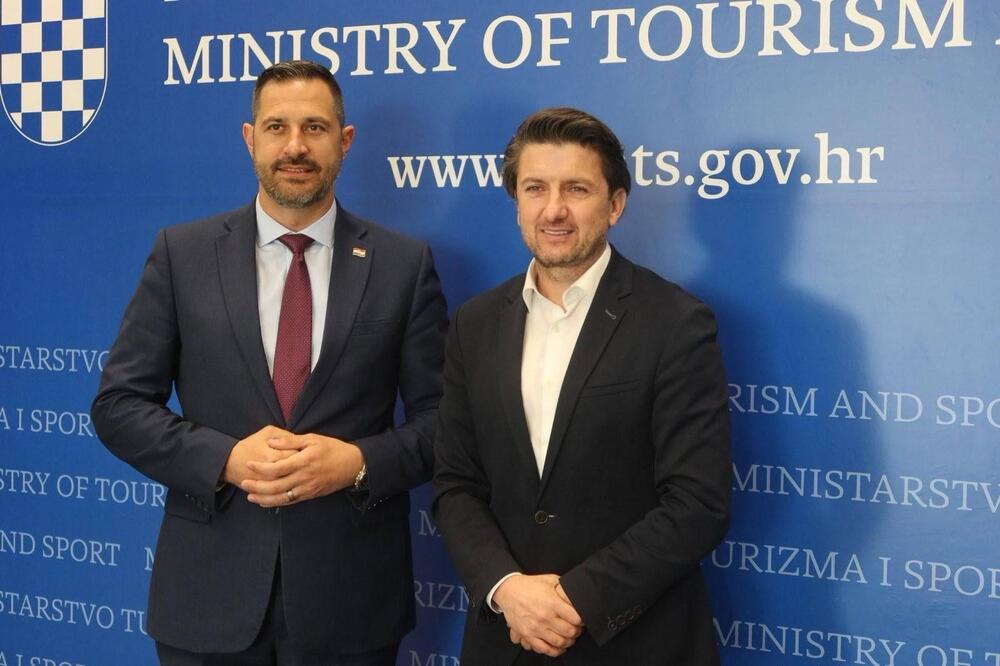site.btaBulgarian Tourism Ready for Euro Changeover


Minister of Tourism Miroslav Borshosh held a working meeting with his Croatian counterpart Tonci Glavina in Zagreb. The main focus of the talks was the benefits of the adoption of the euro on one of the most important economic sectors.
Minister Borshosh noted that the tourism sector in Bulgaria is ready for the adoption of the euro, which will make the country even more attractive for foreign tourists. Facilitated payments, price transparency and predictability are just some of the benefits that will be beneficial to both tourists and businesses in the sector.
Minister Glavina told his guest about Croatia’s experience, underlining that the effect of the introduction of the euro has definitely been positive for the sector. Long before the official adoption, businesses in Croatia had started working with external partners in euros, which had facilitated the transition and contributed to a significant increase in foreign investment. As a correlative result of Croatia's entry into the eurozone on January 1, 2023, the increase in the country's average wage was pointed out, which for the month of March 2025 reached EUR 1,448, with an increase of 5.8% in one year and taking into account inflation of 3.2%.
"Croatia is our strategic partner and an extremely useful example for Bulgaria on the threshold of our accession to the euro area. I am convinced that the introduction of the euro in our country will bring long-term benefits to Bulgarian tourism. The industry is prepared and has adapted its systems and processes for easy bookings and payments for services in hotels, restaurants and tourist products also payable in euros. Bulgarian tourism is ready for growth in 2026," Minister Borshosh said.
Minister Glavina expressed strong support for Bulgaria's accession to the euro area. He commented that the use of a single currency is an important advantage when choosing a tourist destination. It eliminates the need to exchange money and the associated fees and costs. In Minister Glavina's words and according to their data, this is what has made travelling to Croatia more convenient and attractive for tourists from countries that already use the euro. He expressed confidence that the same positive effect would be felt in Bulgaria.
The Croatian Minister said that foreign tourists dominate the numbers only in the summer season, and for the first quarter of this year domestic tourism maintained its higher levels and was in first place. He added that after Croatia's accession to the eurozone, there has been an increase in Croatian tourists travelling inside the country, mainly as a result of rising incomes.
The meeting is part of the Ministry of Tourism's active foreign and European policy engagement to position Bulgaria as a stable and predictable partner in the region.
/RY/
news.modal.header
news.modal.text